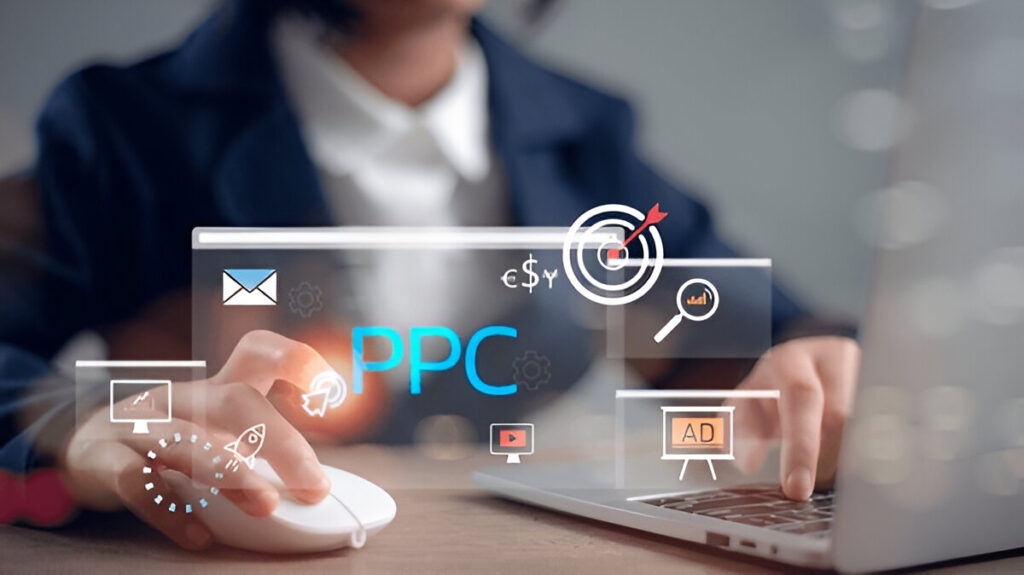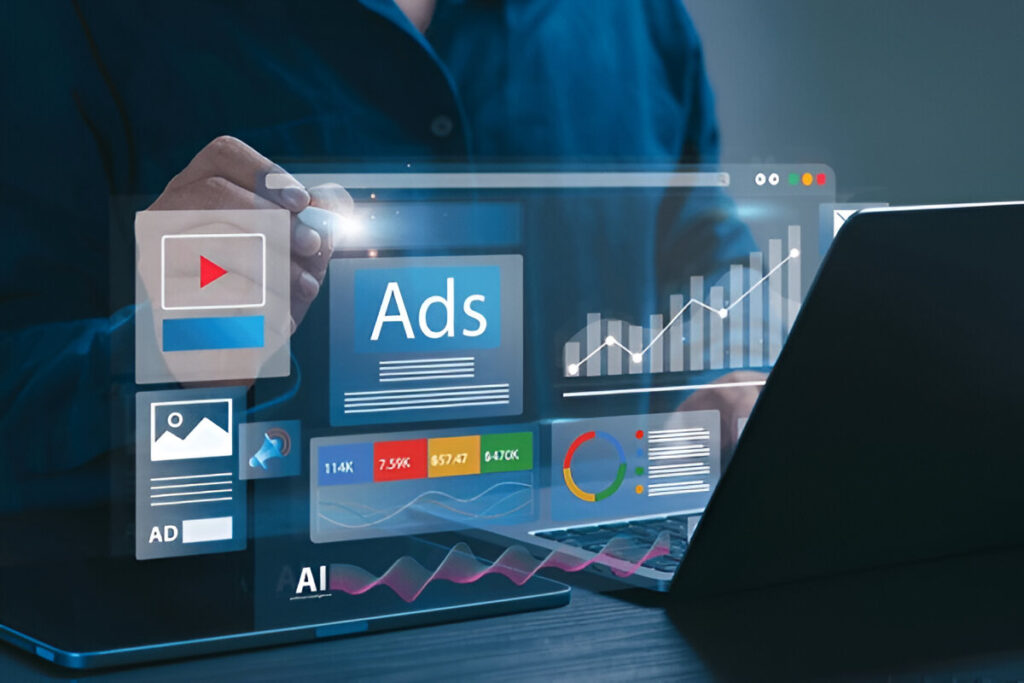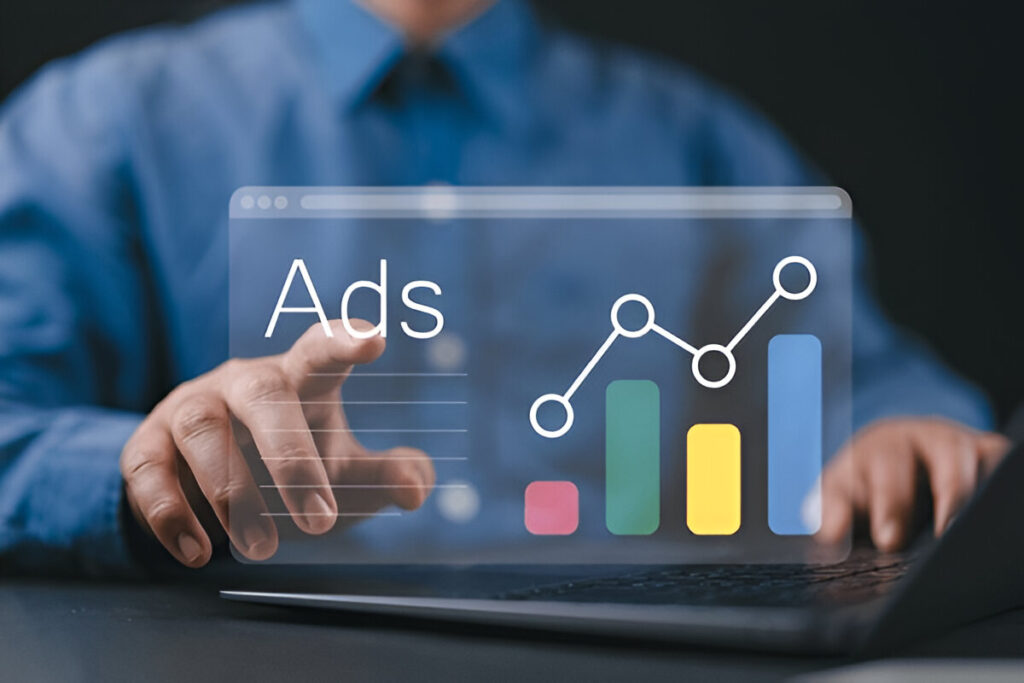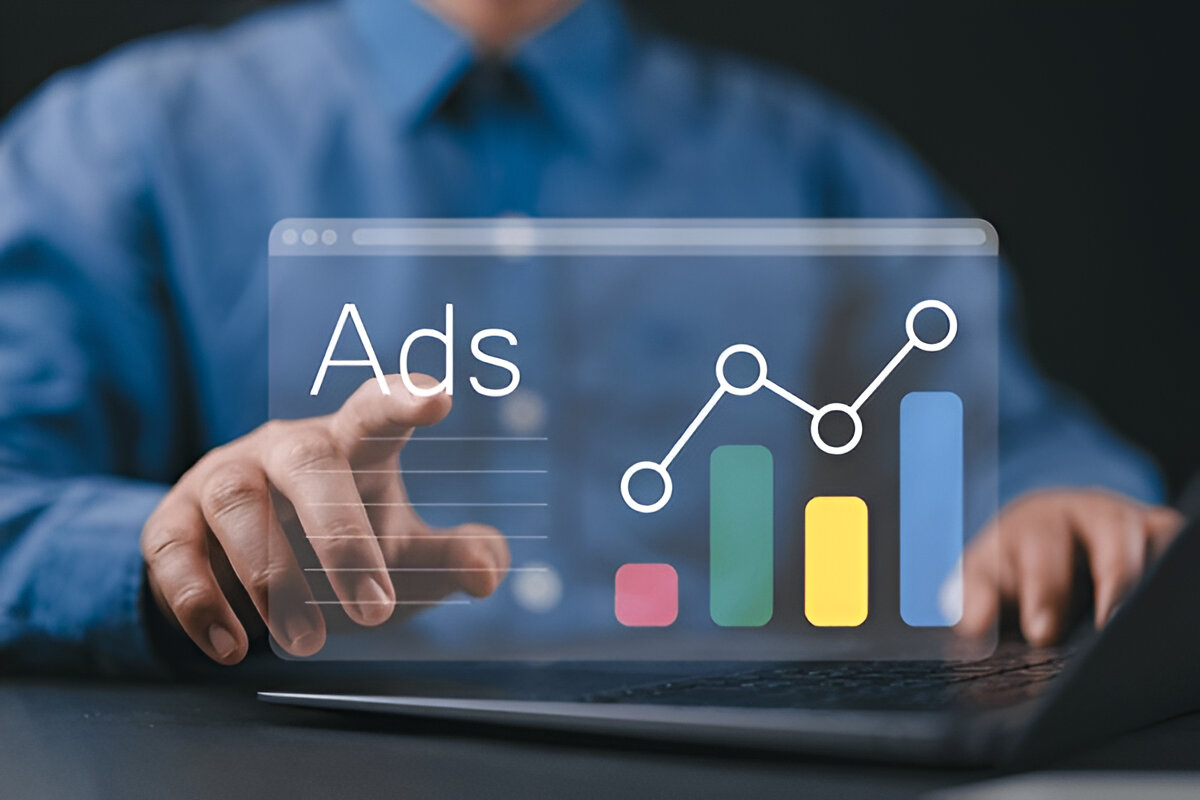If you’re looking to grow your business and attract customers in a cost-effective way, pay-per-click (PPC) advertising is worth exploring. But what is PPC advertising, and how can it benefit you? Let’s break it down into simple terms so you can determine if it’s the right strategy for your business.
What Is Pay-Per-Click Advertising?

At its core, pay-per-click (PPC) advertising is an online marketing strategy where you pay each time someone clicks on your ad. Instead of paying a flat fee to display your ad, you’re only charged when it successfully drives traffic to your website or landing page. It’s a way of “buying” visits rather than waiting to generate them organically through SEO or long-term branding efforts.
The most popular platform for PPC? Google Ads. Google Ads allows businesses to bid on keywords so their ads appear at the top of the search results when people look for related terms. For example, a local bakery might bid on keywords like “best cupcakes near me” or “wedding cakes.” When someone searches for those terms, their ad pops up in front of the person actively searching for those products or services.
PPC advertising also spans other platforms like Bing Ads, Facebook Ads, and Instagram Ads, where you can target audiences through search, display, or social ads.
Why Do Businesses Use PPC Advertising?
Pay-per-click (PPC) advertising has become a cornerstone of modern digital marketing strategies. It allows businesses to reach their target audience quickly, measure results accurately, and maintain control over their advertising spend. Unlike traditional advertising methods, PPC provides immediate visibility on search engines and social media platforms. This makes it especially appealing for businesses looking to drive traffic and generate leads in a competitive market. Let’s explore some key reasons why businesses rely on PPC advertising.
1. Instant Visibility
Rather than waiting weeks or months for organic search results to improve, PPC allows your ads to start showing up immediately after launching a campaign. This means you can quickly get in front of potential customers who may be searching for what you offer.
2. Targeted Reach
One of the greatest advantages of PPC is its ability to target specific audiences. Whether you want to reach local customers, individuals with certain interests, or those searching for a specific product, PPC platforms allow you to set precise targeting criteria. So you can only target those audience who are interested in your product and services.
3. Cost Control and Measurable Results
Unlike traditional advertising like billboards or radio ads, PPC lets you set a budget and control costs. You only pay when someone clicks your ad, making it highly cost-efficient. Plus, you’ll have access to detailed analytics that show you exactly how your campaigns are performing, so you can adjust as needed to improve results. You will also get a credit which when running ads and you can use that credit to run more ads in future.
4. Customizable Campaigns
Need a promotion to boost foot traffic during the holidays? Want to reach more users shopping online? PPC lets you create campaigns tailored to your goals and adjust them in real time. Everyone has different goal while running the ads someone wants to some wants to generate leads , some focuses on getting visitor , some focus on sale it all can be customized according to your goal
5. Helps Small & Local Businesses Compete
Small business owners often assume they can’t compete with larger companies due to limited resources. By narrowing PPC campaigns to focus on specific zip codes or regions, local businesses have a powerful tool to reach customers in their area without needing a massive budget.
6. Drives Quality Traffic
With PPC, your ads are shown to people actively searching for related goods or services. This means the traffic you generate is likely to consist of high-intent customers who are more likely to convert into sales or leads.
How Does PPC Advertising Work?

Here’s an easy breakdown of how PPC advertising typically works on platforms like Google Ads:
- Keyword Research
You start by identifying the keywords or phrases customers are likely to search for when looking for your service. For example, if you’re a plumber in Denver, your keywords might include “emergency plumbing Denver” or “affordable Denver plumber. Also while doing keyword research make sure to check keyword volume and its difficulty to rank on search engine optimization
- Ad Creation
Once you’ve chosen your keywords, you’ll create an ad. This usually includes:
- A headline that grabs attention (e.g., “Need a Plumber Fast? We’re Available 24/7!”)
- A short description of your service
- A link that leads to your website or landing page
- Bidding on Keywords
PPC works on a bidding system. You’ll set a maximum bid (how much you’re willing to pay for a click). The more competitive the keyword, the higher the cost-per-click. Google determines ad placement through a mix of bid amount and ad quality (called Ad Rank).
- Ad Placement and Display
Once your campaign is active, your ad will appear on Google’s search results or display network. The higher your Ad Rank, the closer to the top of the page your ad will be.
- Pay for Clicks
Each time someone clicks your ad, you pay the cost associated with the keyword they searched. The amount varies depending on competition but typically ranges from a few cents to several dollars.
- Monitor and Optimize
Successful PPC campaigns require monitoring. Use analytics tools provided by platforms to see how your ads are performing. Adjust bids, keywords, or ad copy as needed for greater impact.
Is PPC Right for Your Business?

PPC advertising is a flexible, scalable strategy that suits many businesses. Whether you want to attract local customers to your shop, bring more users to your eCommerce store, or simply raise awareness of your brand, PPC can deliver results. However, it’s important to plan your campaigns carefully to maximize your budget and achieve your goals.
If you’re just starting out, consider working with a professional or using free online tutorials to familiarize yourself with the basics. Many platforms also offer tools that guide you through the initial setup step by step.
Pro Tip: Start small with a limited budget, and scale your campaigns as you begin to see positive momentum!
Final Thoughts
Pay-per-click advertising is a powerful way to connect with customers, grow your online presence, and achieve measurable results. With its ability to deliver targeted traffic and instant visibility, PPC can be a game-changer for your business.
If you’re ready to boost your marketing efforts, take the first step by exploring PPC platforms like Google Ads. With thoughtful planning, PPC can become one of the most effective tools in your marketing arsenal.
Got questions or looking for additional tips? Feel free to reach out—we’re always here to help guide







Leave a Reply